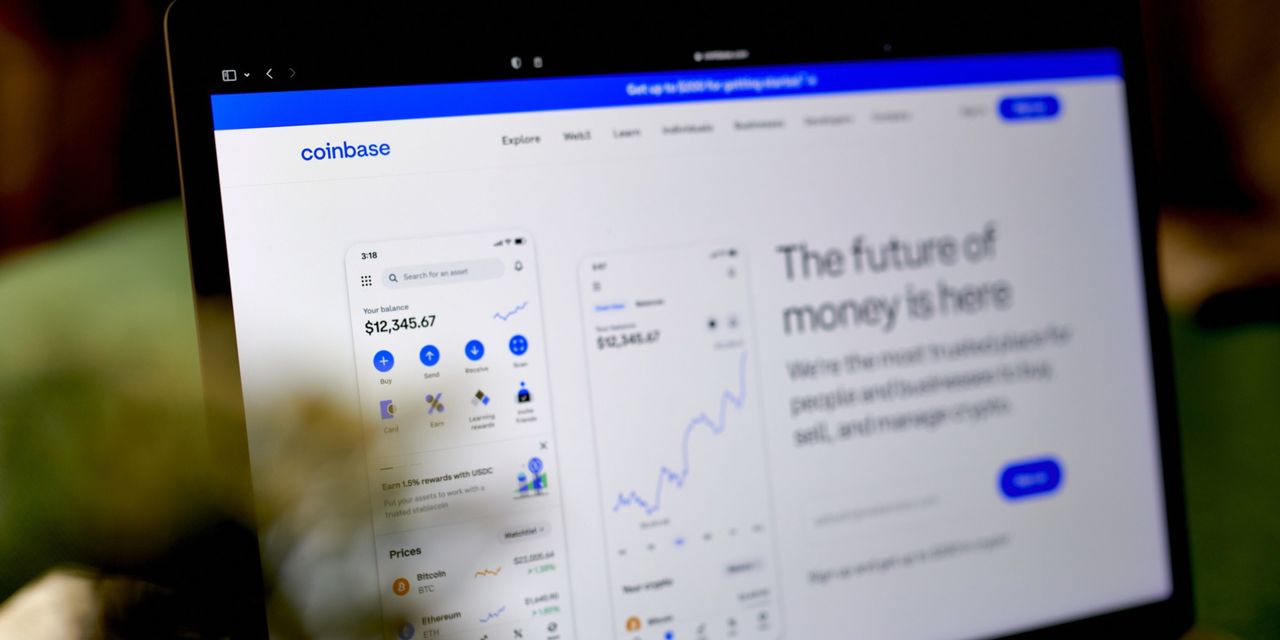A federal judge last month gave crypto investors reason to celebrate. Now another has ended the party, and
Coinbase
Global investors are paying the price.
Judge Jed Rakoff on Monday ruled that the Securities and Exchange Commission can move forward with its lawsuit against Terraform Labs for allegedly defrauding investors. Rakoff pointedly rejected an approach by Judge Analisa Torres in the same court that some investors believed meant Coinbase (ticker: COIN) and other crypto-trading platforms could avoid securities regulation in most cases.
The ruling will likely breathe life into the crypto crackdown brought by SEC Chair Gary Gensler over the past year—and could spell trouble for firms such as Coinbase that are facing existential questions depending on how the court cases turn out.
Coinbase stock is down 5.8% to $92.86 in Tuesday trading.
The crux of the conflict involves in what circumstances crypto tokens should be considered securities. Securities fall under the remit of Gensler and his relatively aggressive approach to crypto enforcement. The SEC in June sued Coinbase for allegedly operating as an unregistered securities exchange, but if judges decide most token transactions don’t meet that definition, the case could fall apart.
In mid-July, Torres in federal court in the Southern District of New York ruled that a token called XRP, in and of itself, was not a security. Transactions that involved sales to institutional investors do fall under securities laws, she said, while many transactions on the secondary market did not. Investors interpreted the ruling to mean that most activity on Coinbase could be exempt, and the stock soared 20% the following day.
Rakoff’s ruling, in the same district, complicates matters. In the Terraform case, Rakoff referenced Torres’ decision and wrote “this Court declines to draw a distinction between these coins based on their manner of sale,” later adding that he “rejects the approach recently adopted by another judge of this District in a similar case.”
That has troubling implications for Coinbase, say some analysts. Investors interpreted the earlier decision “as supportive of COIN’s defense in the lawsuit brought against it by the SEC,” wrote Berenberg analyst Mark Palmer in a research note on Tuesday, who has a “Hold” rating on the stock. Palmer described Monday’s ruling as a “resounding rejection.”
There’s a long path between July’s rulings and how they’ll affect Coinbase. The SEC can appeal the XRP ruling, but as a matter of procedure, judges could decide that the agency has to wait until that case has finished to challenge it, a process that could take years. In the meantime, neither the XRP nor the Terraform decisions are binding on other courts.
The contrasting rulings do at least put one point in crypto’s favor. Gensler for years has argued that securities laws are clear, and that crypto companies’ true problem is they don’t want to follow them. But in the course of a month, federal judges in the same district have come to starkly different conclusions on how the law applies to token transactions.
The SEC declined to comment to Barron’s.
“The courts are not a venue for policy-making and the opinion in the Terraform case further confirms that Congress needs to pass legislation that provides clear rules of the road for digital assets that protects consumers and innovation in the U.S.,” said Paul Grewal, Coinbase’s chief legal officer, in a statement to Barron’s.
To that end, a House committee last week voted in favor of legislation that attempts to give clarity to how regulators should police crypto assets. Though the bill has a good chance of moving to a vote in the Republican-controlled House, it’s not yet clear that there’s enough interest among Democrats in the Senate for such a bill to become law.
Write to Joe Light at [email protected]
Read the full article here




